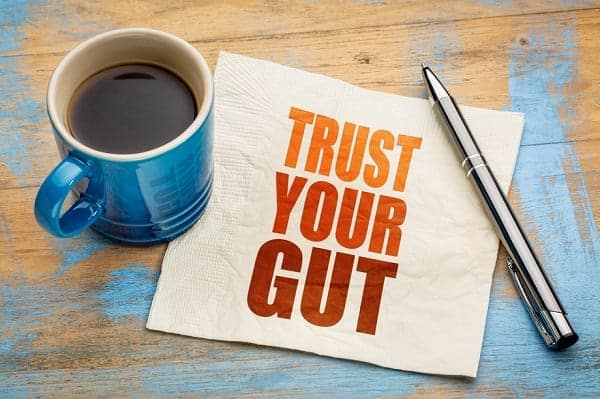When you’re addicted to a substance, your mind is physically re-wired to make drug-seeking choices for you. If both your mind and your body say “go for it!” there isn’t a whole lot you can do when you’re addicted. But when it comes to recovery, you learn how to ignore those signals – that addicted monkey on your shoulder. And true, it takes a long time to hush that voice in your head telling you to use again. In fact, some people will hear it for the rest of their lives. Eventually though, you’ll come to a point when you can stop walking around on eggshells, constantly worried that you’ll end up making a choice that’ll send you down the spiral of relapse. Eventually, you can actually start trusting yourself again. Here’s how to start the process.
Start with a Clean Slate
Possibly the most crucial step towards recovery, dropping your self-destructive emotional baggage is critical to trusting yourself again. While you should never forget the damage your drug-fueled actions have caused and you should always remember how you’re always going to be susceptible to using again, holding on to the pain and guilt forever won’t get you anywhere. You have to forgive yourself before you can move forward with your life. Otherwise, you’ll be stuck in a vortex of regret forever.
Relish the Small Victories
As you probably already know, recovery comes slowly. For some, weeks and even months pass before you begin to feel like your life is on track again. And while progress may be slow, it’s progress nonetheless. In order to make it through your recovery, then, you need to really savor the small victories. Maybe you’ve made it a month without using. Or maybe you’ve come clean about your addiction to your family. Perhaps you’ve just learned to enjoy yourself while sober for the first time in ages. No matter what kind of victory it is, making note of your accomplishments is one of the best ways to build up your trust and recognize that you’re making progress.
Realize That Recovery Is a Process
Keeping in line with the last step, it’s important to realize that recovery is itself a process. You make small accomplishments and then – this is crucial – you build on them. No one gets back to a sober life by taking the same steps over and over. You have to use what you’ve learned and achieved to reach even higher. Set new goals for sobriety like longer timelines or maybe interacting with friends with alcohol or drugs nearby. While you certainly don’t want to put yourself in a situation you won’t be able to handle, you should still take small steps towards accomplishing something new. Once you’ve achieved and moved past these goals, you’ll eventually look back and wonder why you were ever afraid of them in the first place. In that same vein, there’s one principle of recovery that’s especially important to realize – recovery takes action. You can’t hide in your home for the rest of your life, living in fear that you’ll fall back into using again. Learn more about addiction, put yourself in new situations, take up novel techniques like mindfulness meditation to help you deal with cravings. Whatever you do though, be sure to do something.
Build and Use Your Support Network
A critical component of any recovery program is building up a support network. No matter how strong willed you think you may be, everyone needs the support of someone that cares about you to get through a process as difficult as recovering from drug addiction. And it’s not just the social connections themselves that help you heal either. Sometimes it’s using the wisdom and experience of others to learn more about yourself and what you’re capable of. So while it might be hard to connect with others right now, doing so is important not just for recovery but for learning how to trust yourself again as well.
Learn How to Prepare for and Deal with Slips and Relapses
Relapse – the word a recovering addict fears the most. And while relapse isn’t a sure thing in a recovery program (despite what many people say), it can be quite likely. It’s worth pointing out, however, that addiction relapse rates are consistent with other chronic illnesses like diabetes and asthma. In fact, recidivism among drug users is actually lower than in people with chronic hypertension. If people can break through the cycle of relapse in these chronic illnesses, you can break through when it comes to drug addiction too. But even still, it’s crucial to have a plan.
Trusting Yourself: The Foundation of True Recovery
The recovery process can be a long and difficult one. And while the help of your support group and your friends and family is crucial, the deciding factor on your successful recovery is you. So follow the steps, take it slow, be forgiving, and start to trust yourself again.
Source:
National Institute on Drug Abuse (2014 July). Drugs, Brains, and Behavior: The Science of Addiction. Retrieved from https://www.drugabuse.gov/publications/drugs-brains-behavior-science-addiction/treatment-recovery

